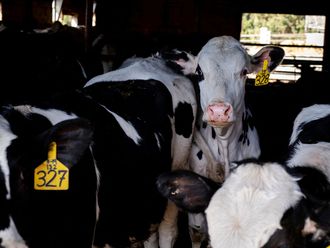Lawrence, Massachusetts: On a cold, blustery January day in 1912, immigrant women walked out of the Everett Mill in the Massachusetts factory town of Lawrence demanding higher wages and better working conditions. Mill owners and city government responded in a swift and heavy-handed manner; local militias and police forces were called to the streets. Protesters died. Many more were arrested.
On a cold, blustery February day 117 years later, the Massachusetts senator Elizabeth Warren stood in front of Everett Mill to announce her candidacy for president of the United States, channelling the spirit of those women as she told her supporters that they were in a fight for their lives against a rigged system that favours the rich and powerful.
“These workers — led by women — didn’t have much. Not even a common language. Nevertheless, they persisted,” she said. “The story of Lawrence is about how real change happens in America. It’s a story about power — our power — when we fight together.”
For Warren, who grew up in an economically struggling Oklahoma household and who first rose to mainstream prominence by handing out practical financial advice to American families, the word “fight” is central to her platform and political ethos — it was a word peppered throughout her speech.
But on Saturday, she made clear that hers was not just a fight against pPresident Donald Trump, but against a system she described as one where the rich, privileged and powerful oppress the rest of the country.
“The man in the White House is not the cause of what is broken, he is just the latest — and most extreme — symptom of what’s gone wrong in America, a product of a rigged system that props up the rich and the powerful and kicks dirt on everyone else,” she said. “So once he’s gone, we can’t pretend that all of this never happened.”
The backdrop of the mill, where the so-called Bread and Roses strikes originated, was symbolic. But so too was the choice of the modern day city of Lawrence, which is one of those places in America that has felt left behind in recent times. To many in New England, Lawrence is synonymous with crime, drugs and poverty.
The Republican governors of Maine and New Hampshire have invoked the city’s name when laying blame for the opioid crises in their states. As was the case at the time of the strikes, Lawrence is a working class city of immigrants, with a population that is about 80 per cent Latino. It is a city where wealth is nearby, but out of reach for many.
Sebastian Brown, 31, moved to Lawrence five years ago. While he had yet to choose a candidate to support, he was excited by Warren’s message and was happy Warren chose the town as the site of her announcement.
“This is a working class city. And I think her — and Bernie [Sanders] — are running on platforms that speak to the working class and how they’re being [expletive] over by the rich and powerful,” he said. “And I think she’s a great messenger for it.”
While there was optimism about Warren’s candidacy at her rally, she enters an already crowded Democratic field amid renewed controversy over her past identification as Native American. For years now — since even before he was president — Trump has needled Warren on the issue , calling her ‘Pocahontas’. He and others accuse Warren of falsely presenting herself as Native American to gain unfair advantages in life. The controversy was re-ignited last week when the Washington Post published Warren’s 1986 registration card for the Texas State Bar. In it, she listed ‘American Indian’ as her race.
Warren has now apologised repeatedly for identifying as Native American, saying in recent days that she “should have been more mindful of the distinction with tribal citizenship and tribal sovereignty”. She still maintains that Native American ancestry was part of her family’s story passed down to her.












